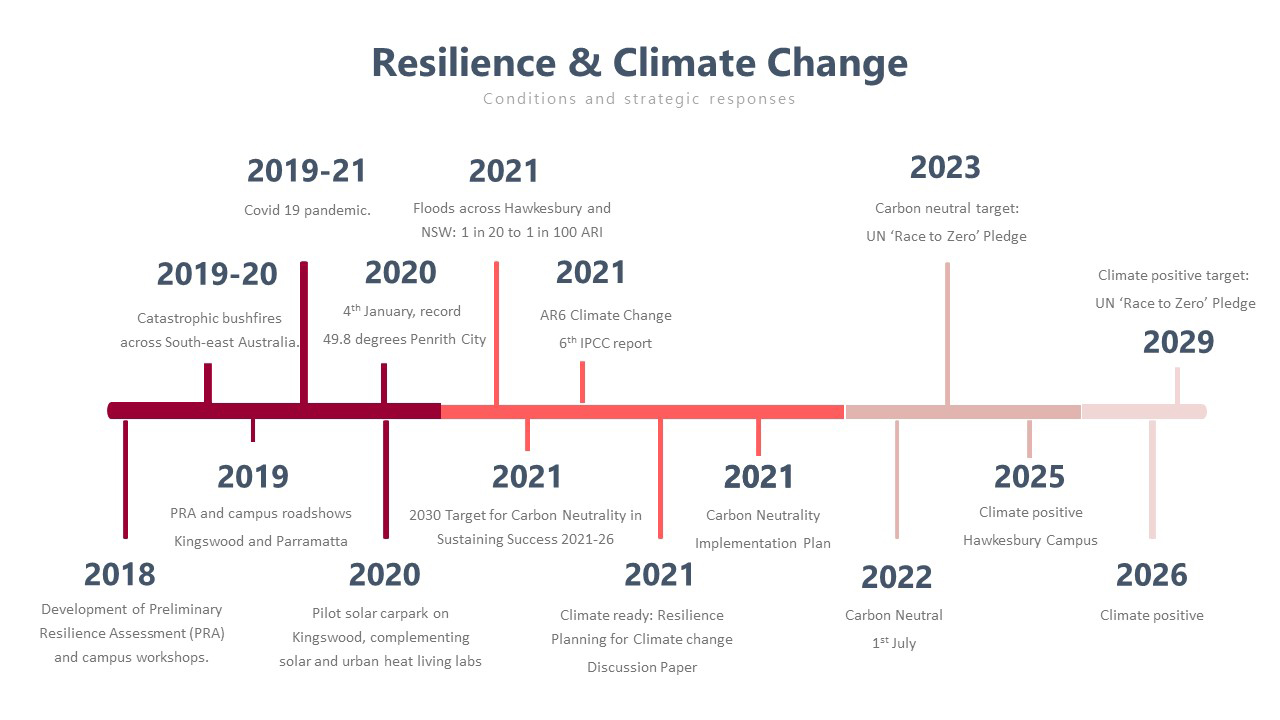Environmental Sustainability
- Division of Infrastructure and Commercial
- Achievements
-
Action Plan
- - Commitment
- - Environmental & Institutional Context
- - Resilience & Climate Change
- - Sustainable Energy
- - Water Cycle Management
- - Green Star Buildings & Precincts
- - Waste & the Circular Economy
- - Biodiversity Conservation
- - Biosecurity & Environmental Health
- - Regenerative Agriculture
- - Transportation & Travel
- - Social & Corporate Responsibility
- Environmental Performance
- Campus and Accessibility Maps
- Carbon Neutrality
- Hawkesbury Farm
- EV Charging Stations
- Living Labs
- Plans, Publications & Reports
Environmental and Institutional Context
2022
Since the initial development of the Environmental Sustainability Action Plan, there have been significant cascading and cumulative impacts on organisational and personal resilience, including:
- The COVID-19 pandemic, with worldwide impacts on communities, mobility and supply chains of goods and services, and public health strategies. The impact of reduced international student mobility has been a significant impact on the financial resilience of tertiary institutions.
- Regional natural disasters, including the bushfires of 2019-2020, floods across Eastern Australia in both March 2021 and again in March 2022, compounding cumulative impacts on affected communities and households.
- The ‘post-truth’ politics of Trumpism and COVID-19, and tensions of democracy and autocracy shockingly reflected in the Russian invasion of the Ukraine.
Within this challenging context, some significant policy responses to resilience and climate change risks have emerged, including:
- The 6th Assessment Report (6AR) of the IPCC (Intergovernmental Panel on Climate Change), with a report from Working Group 1 in 2021 on the physical science basis of climate change and projections for impacts, and from Working Group 2 in early 2022 addressing the damage being caused by climate change and options for communities and ecosystems to adapt.
- The 26th UN Climate Change Conference (COP26) in late 2021, and the associated UN-led ‘Race to Zero for Universities and Colleges’ pledge, for which the University has set the ambitious targets of Carbon Neutral by 2023 and Climate Positive by 2029.
- A NSW Government focus on Circular Economy principles as an integrating framework for waste management, and banning the use of single use plastics for many common purposes coming into effect during 2022.
Mobile options:



